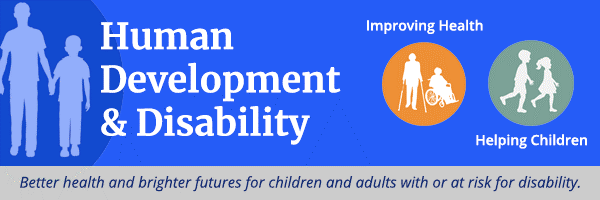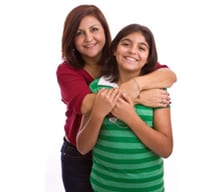DHDD Newsletter – June 2022

A Note from the Acting DHDD Director

Dear DHDD Partners,
June has started off as a busy and exciting month. We were able to attend the Special Olympics USA Games for the first time in two years, and it was amazing to be there! I had the chance to meet many new people in person since I started in DHDD during the pandemic. It was exhilarating for everyone to have an event like this after so long. The athletes were and continue to be such an inspiration for us all. I was proud to be there and proud to support such an important organization.
We are also celebrating two important observances this month. Pride month is a time to celebrate our LQBTQ+ partners, friends and family and continue advocating for their rights and equality. We also commemorated Juneteenth as a federal holiday, a long overdue recognition of an important date in our country’s history. It makes me proud that we continue to support and recognize these significant observances.
Finally, I hope you all are taking some time off this summer to enjoy time with your families and friends. It has been quite a while that we have been able to enjoy travel over the summer season, so my hope is that you all seize the opportunity to rest, relax and enjoy much-deserved time off.
Best,
Blythe
In the Spotlight
2021 Annual Report to Congress of the Community Preventive Services Task Force: Spotlight on Children’s Mental Health

Just released, the 2021 Annual Report to Congress of the Community Preventive Services Task Force (CPSTF) features a spotlight on children’s mental health and highlights CPSTF recommendations for school-based cognitive behavioral therapy programs that can help improve children’s access to mental health services. The report summarizes CPSTF’s work in fiscal year 2021, including nine recommendations and findings for intervention approaches that address heart disease, HIV, nutrition, and physical activity, and findings from economic systematic reviews related to asthma, health equity, and heart disease. The report lists critical evidence gaps identified from the systematic reviews that are the basis for the CPSTF recommendations and highlights priority topics selected by CPSTF to guide future reviews.
New Resources
Why Family Health History is Important if a Child has Attention and Learning Problems

When a child has a family member with learning or attention problems, the child may be more likely to have similar problems. Sharing the child’s family health history of learning and attention problems with the child’s healthcare provider can be an important step in understanding what the child needs and how best to support the child. If a child has problems with attention and learning, this information could help the provider get them the services they need as early as possible.
Learn more [Why Family Health History is Important if You or Your Child has Learning or Attention Problems | CDC]
988 Lifeline Suicide and Crisis Network – Volunteer and Job Opportunities
Our partners at the Substance Abuse and Mental Health Services Administration (SAMHSA) could use help in promoting a new volunteer and job opportunity.
On July 16, 2022, the National Suicide Prevention Lifeline (1-800-273-8255) will transition to an easy-to-remember, 3-digit number (988). This represents an unprecedented opportunity to strengthen and expand the existing network of over 200 locally operated and funded crisis centers across the country.
In advance of the 988 transition in July, the Lifeline suicide & crisis network is looking to bring on new volunteers and paid employees to answer calls, chats, and texts from people in crisis. All employees and volunteers receive training.
Find out more about Crisis Lifeline volunteer and job opportunities.
The “Core Resource” was developed by the National Institute on Alcohol Abuse and Alcoholism, a part of NIH, with input from 70 contributors, including many practicing clinicians. It has 14 user-friendly, practical overviews designed to help clinicians overcome barriers to evidence-based care for patients with alcohol-related problems. It also offers additional links for patient care that provide alcohol-related clinical guidance from CDC, other federal agencies, and professional organizations. Up to 10.75 hours of CME/CE credit are available for physicians, physician assistants, nurses, clinical psychologists, and pharmacists.
Additional Free At-Home Rapid COVID-19 Tests Available

On May 17, 2022, the Biden Administration announced that Americans could order an additional eight free at-home tests at COVIDTests.gov. Each household can now receive up to 16 free at-home tests. Over 70 million households have ordered at-home tests to be mailed directly to them. Going forward, Congress will need to provide additional funding to sustain the test manufacturing capacity to be able to offer free tests.
Plain Language:
Americans can order free at-home COVID test kits from https://www.covid.gov/tests or calling 1-800-232-0233 (TTY 1-888-720-7489). Even if you ordered at-home tests before, you could order them again. Action Step: For more information or to order at-home COVID tests, go to COVIDTests.gov or call 1-800-232-0233 (TTY 1-888-720-7489).
Publications
COVID-19 and Medicare Beneficiaries with Disabilities
Don’t miss our new study that explored the rate of COVID-19 associated hospitalizations among Medicare beneficiaries eligible due to disability compared to beneficiaries eligible due to older age. They found that the rate of COVID-19 related hospitalization was greater (3,148 per 100,000) among people with disabilities compared to the rate of hospitalization for people aged 65 and older (2,129 per 100,000). Further evidence of the impact of COVID-19 on people with disabilities. Please share this with your partners!
Estimating the number of people with Tourette syndrome and persistent tic disorder in the United States
A new CDC study published in Psychiatry Research estimates that 350,000-450,000 U.S. children and adults have Tourette syndrome and about one million have other persistent tic disorders. These findings can help inform national-level visibility efforts. More precise and more localized measurements are encouraged in order to more accurately reflect those affected and to better plan for service needs.

